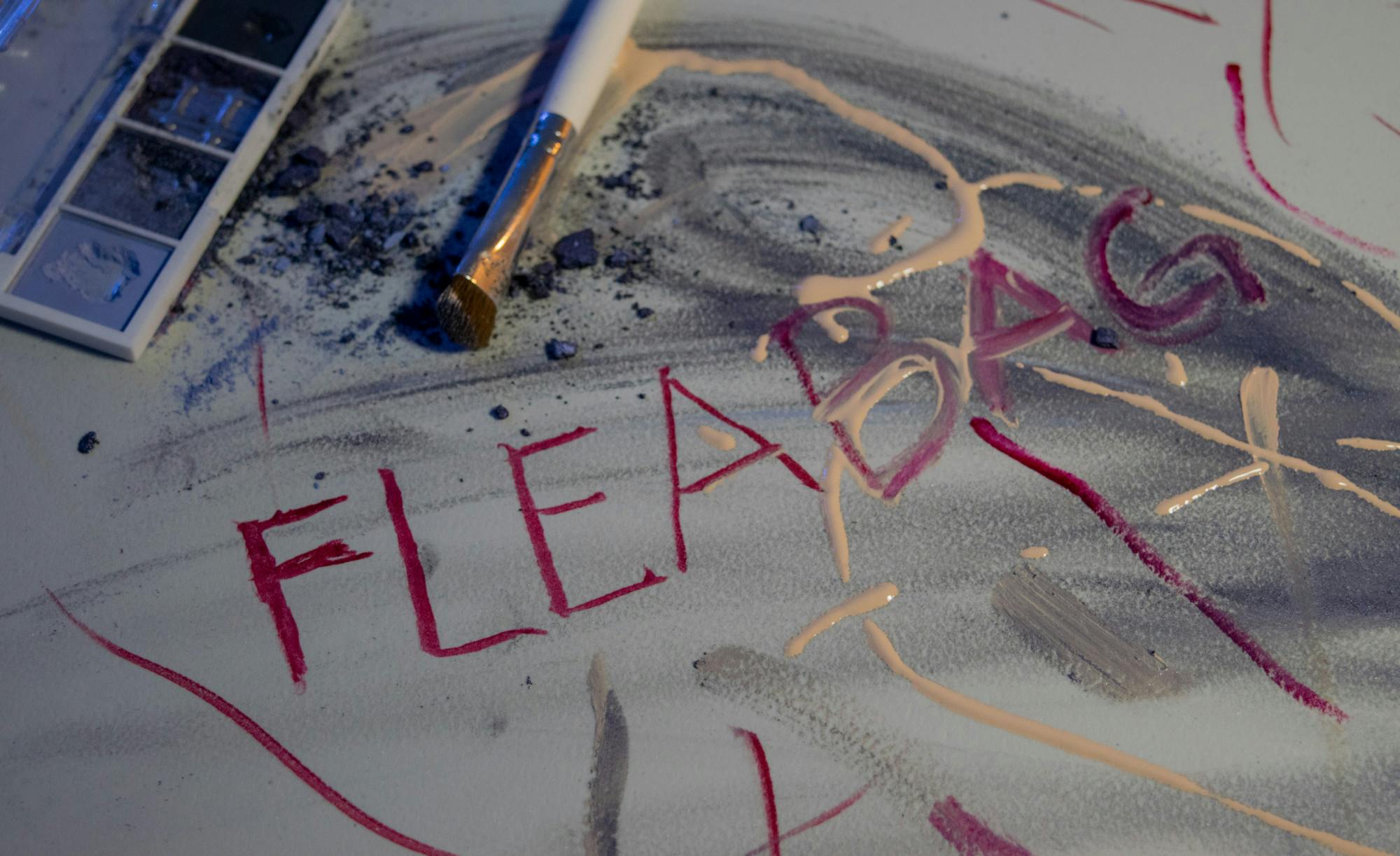My world changed the first time I heard Amy Dunne’s “Cool girl” monologue. I was not and still am not married, but the viscerality of the anger when you invested too much in a relationship only to be paid dust (he made her go to Missouri!) was too familiar.
Many others share my sentiment. We justify Amy’s cruelty the way our counterparts like to talk about Patrick Bateman. We celebrate Amy for displaying a darker, more cynical part of womanhood with an air of arrogance. And our love for complex femininity is only growing, perpetuating every corner of popular culture. Nowadays, a casual reference of being in your ‘Fleabag’ era or your ‘Reputation’ era is thrown around every 10 tweets or so.
We read a book about a Columbia graduate taking sleeping pills to fall asleep for an entire year. We reward singers who describe that anguish so well by propelling them into mainstream success. The last time I pretended to be well-read and went to a used-book shop, I was lovingly informed that they were out of every book by Sylvia Plath. A new niche for and about sad and angry women is born.
In and of itself, this newfound popularity for cynicism has its own merits. “It is always good to see yourself on screen”, said PhD student Melinda Aley, whose work focuses on the media's influence on moral and gender identity formation. “These women don’t fit into the typical gender box that we think: stay-at-home mom making cookies. So, seeing women out here breaking these molds — I think it is positive. The fact that they are anti-heroines or immoral in a way that we have seen with male characters forever. We are opening up to the idea of what a woman can be, and I think anytime we do that it is definitely positive.”
This trend coincides with the rise of what Buzzfeed termed ‘dissociation feminism’, the phenomenon of feminine-identifying people feeling removed from their reality and instead choose to luxuriate in their pain with help of substance and sex. It is almost a natural response of a post-girl-boss world.
Once considered the pinnacle of the power women have in their workplace, the notion is now shunned by the public after employees detailed the mistreatment they faced at the hand of their female bosses. The very feminism movement birthed empowering anthems is now grasping with the futility of the goals it set out to achieve. After years of work, bodily autonomy is still not a guaranteed rights. For a movement whose criticism is about canceling people too easily, the MeToo movement has not succeeded in displacing well-known abusers. With little to no progress, it is easy to understand how people who feel they have been failed by popular feminism want to give up fighting and just cry. And when you feel that the end is near, what better way to bolster that feeling by listening to a song literally titled that?
Yet, for a subversive response to popular feminism, dissociation feminism also neglected the same demographic that its predecessor exclude. Many critics have noted how similar the artistic depiction of the “unhinged” woman can be, almost as if sadness is only reserved for wealthy skinny girls. Without her white womanhood, would Amy Dunne succeed in framing her husband for murder? Said Columbia graduate’s ability to just take a year off to sleep in a shiny Upper East Side apartment is partially enabled by her own trust fund that pays for both her psychiatrist and living expenses. A 2-star Goodreads review of Sally Rooney’s ‘Normal People’ reads: “Ultimately Marianne and Connell’s whiteness both afford them the opportunity to be continually mediocre in ways that people of color are often not given.” Can people of color not sit in their room and cry now?
The answer is … sort of. It is simply harder to cry when you spend every one of your waking moments going to classes and juggling jobs in an effort to pay for said classes. (On an ironic note, it is also easier for critics to find time to critique a subversive form of feminism and publish since they do not have student loans). Dissociation feminism and its media potrayal implies that there is a place for you to retreat back to when you want to hide from the world. For many, that is simply not the case. If anything, these marginalized communities have turned to believe in the somewhat too cheery mantra of popular feminism. The Cut found that although it is officially disgraced, “girl bossing” is still believed and practiced religiously by many: “Hustle culture was the water in which many young women, especially women of color, swam.” For some, to stop moving is to die. So what if you might have to repeat to yourself the same thing that Koala in Sing said? It is still better than starving.
So what do we do now? Well, on a smaller scale, an increase in representation in every part of the entertainment industry might be a good way to facilitate more nuanced conversation surrounding feminism. If that idea is put into action, maybe we would not have to put ourselves through a similar show like Lena Dunham’s “Girls” anymore.
For us listeners, watchers and practitioners of the mania, let's look to our predecessors for advice. If anything, sad girl artists do not want to be labeled as sad girl artists. As a part of her reaction to tweets about her music being for “sad b-tches”, Mitski urged: ”Let’s retire the sad girl shtick. Sad girl is over.”
In a more sincere attempt, let’s reflect on the media that are usually seen as representative of what it means to be in your manic era. “Look What You Made Me Do” Taylor is angry at those who wronged her, but is Reputation also not a celebration of her love for a partner that has stuck with her through trials and tribulations into her reinvention as a critics darling? For someone who made a show memorable for its use of fourth wall break for the titular character as a means to signify that she is removed and distanced from everything around her, Phoebe Waller-Bridge’s best moment in the series is when she has grown to a point she no longer need us in her world anymore. She is not happy yet, but she is better now.
Sadness and anger are emotions that deserve its celebration, but it is also only a miniscule part of human’s enormous collection of feelings. The thing about being in an era is that era and the persona you associate with it will come to an inevitable end some day. People say you can’t be happy forever. I would also argue you cannot be sad forever.
CUTTING BOARD Wealth and other privileges has given many the true luxury of life, time, to dwell on their feelings and project those to the public.
Privileged creators with connections would also have an easier time getting shows greenlit, no matter the content. The best example would be “Girls”, headlined by Lena Dunham. It started out as an interesting take on modern day womanhood, only to end up being deservingly described as “” and “”. It was even more hated when people learned its creator got the show produced without even a proper pitch. Lena Dunham was able to skirt by the strict standards of the entertainment industry by the sheer force of her privileges alone.
Support student media!
Please consider donating to The State News and help fund the future of journalism.
Discussion
Share and discuss “Manic femininity ” on social media.







